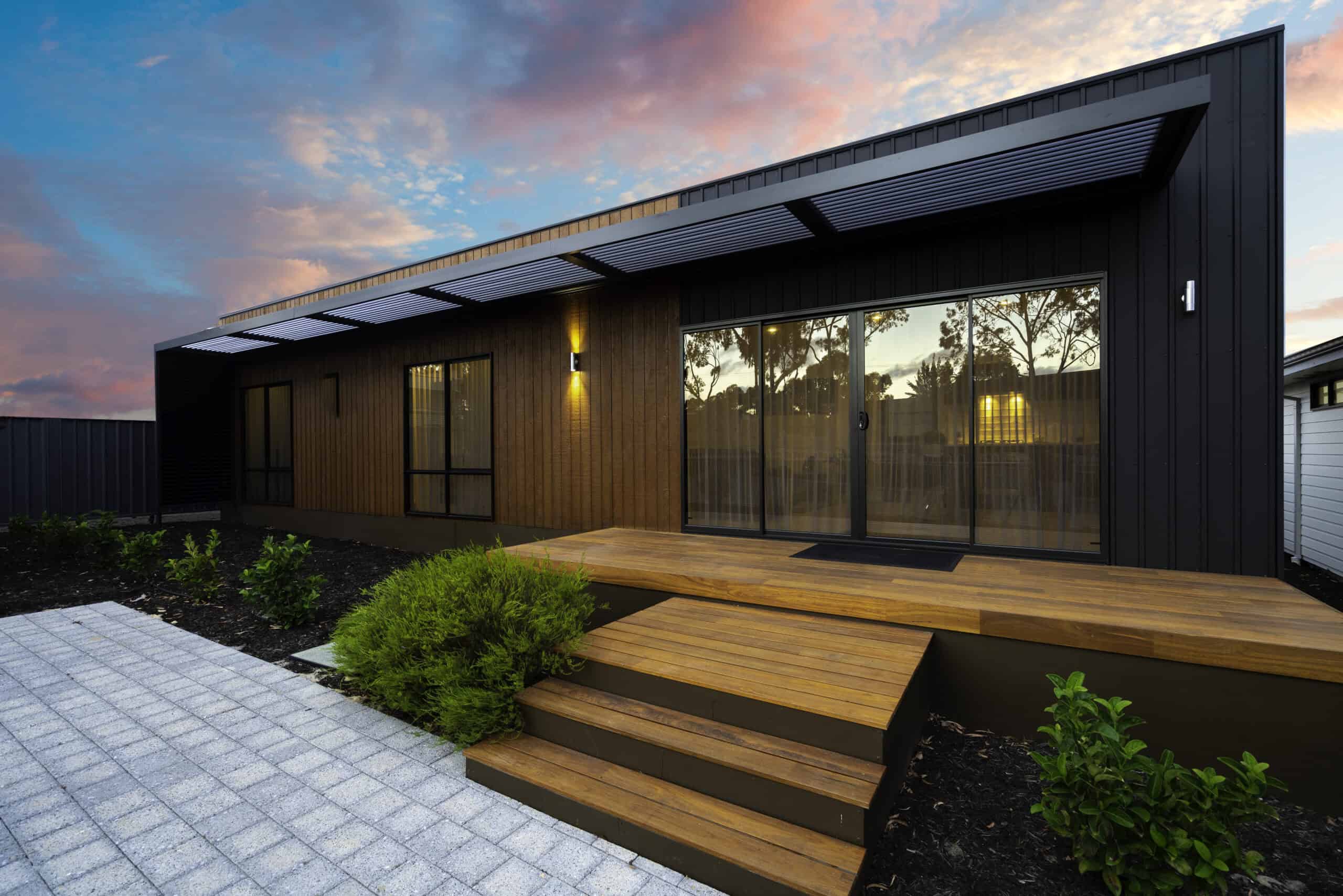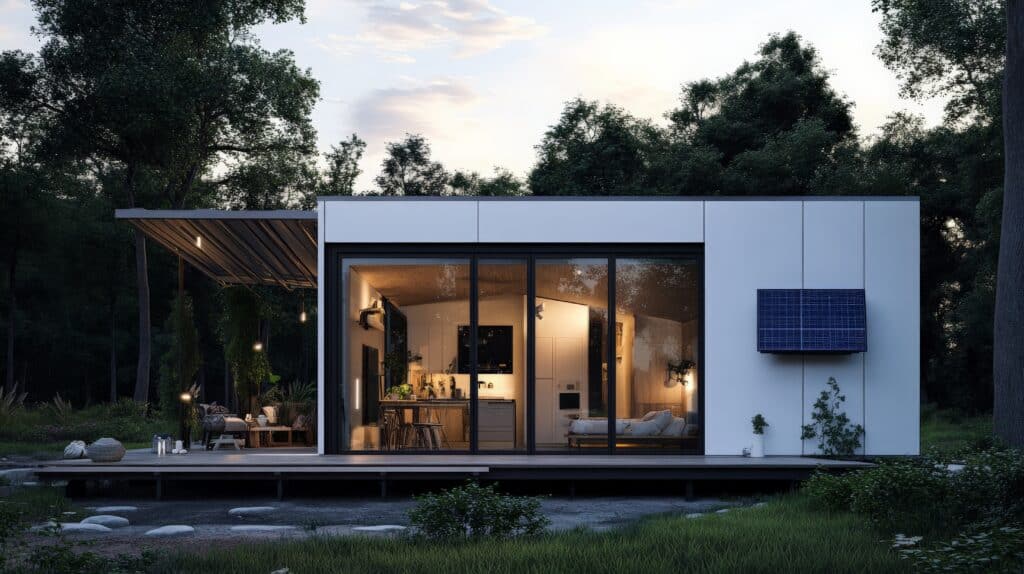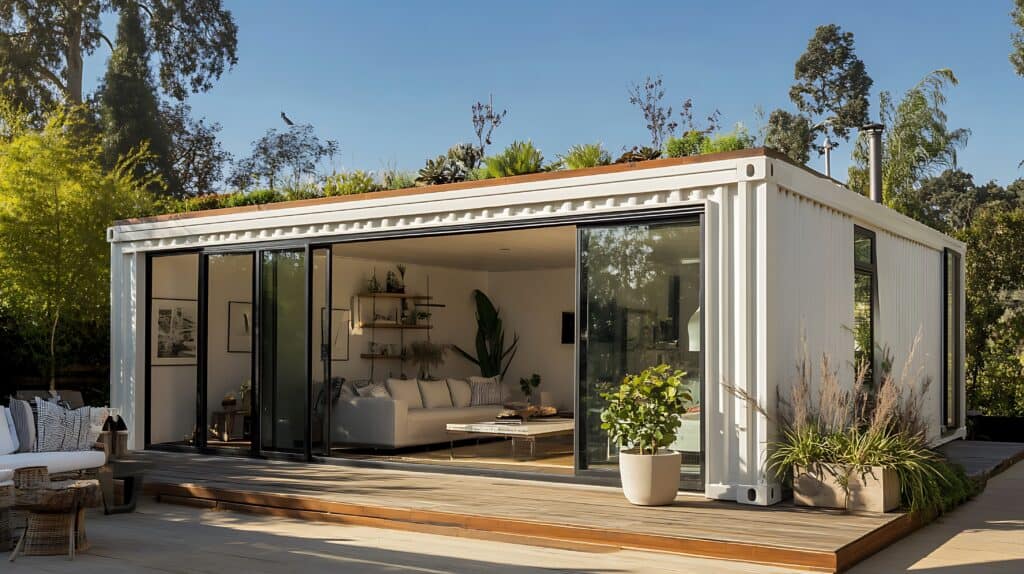Are prebuilt homes the answer to Australia’s growing need for affordable housing?
With increasing demands for both affordable and sustainable living solutions, prebuilt homes are rapidly gaining popularity in the Australian market. Offering a smart alternative to traditional housing, these homes promise quicker build times, lower costs, and more eco-friendly options. In a country where affordable housing is becoming increasingly hard to come by, prebuilt homes are proving to be a solution that aligns perfectly with modern needs. In this blog, we’ll explore how prebuilt homes are not just a trend, but the future of sustainable, cost-effective living in Australia.
What Are Prebuilt Homes?
Definition of Prebuilt Homes
Prebuilt homes, often referred to as modular or prefab homes, are first constructed in a factory setting and then transported to their final location for assembly. Unlike traditional homes, which are built entirely on-site, prebuilt homes are assembled from sections or modules that are pre-manufactured off-site. These homes are often tailored to suit specific site conditions, ensuring that they can adapt to various environmental factors, especially in Australia’s diverse landscape.
The Construction Process
The construction process for prebuilt homes is notably different from traditional homes. Rather than starting from scratch on a construction site, the majority of the work is done in a controlled off-site manufacturing environment, where the pieces are assembled into modules. Once these modules are constructed and tested, they are delivered to the site, where they are put together quickly. This significantly reduces the time needed for the home to be completed — sometimes by months! — compared to the slow, on-site building of conventional homes.
Materials and Customisation
Materials used in prebuilt homes are typically high-quality and can be customised to suit the homeowner’s needs. From insulation materials to energy-efficient windows, modular homes can be designed to provide optimal living comfort while also being energy-efficient. Given Australia’s extreme weather conditions in some regions, modular homes are often designed with these challenges in mind, making them suitable for everything from coastal living to remote inland locations.
Modular WA’s Role in the Industry
Modular WA was founded by Wayne McGrath, who has over 30 years of experience in the industry. The McGrath Family have been at the forefront of introducing prebuilt homes to Western Australia, and since then, Modular WA has developed a reputation for being one of the most reliable and well-known Western Australian modular builders in the industry. Their innovative designs reflect their deep understanding of the local climate and the unique needs of the Australian people. With a family history in building pre-fabricated housing, Modular WA continues to lead the way in offering modern, affordable, and sustainable living solutions for Australians.
The Benefits of Prebuilt Homes for the Australian Market
Addressing the Affordable Housing Crisis
Australia is facing a growing affordable housing crisis, with more people struggling to secure a home due to escalating costs and limited availability. Traditional home construction often involves high upfront costs due to expensive land, labour, and materials, which make it inaccessible for many Australians. Prebuilt homes, however, provide a solution to this problem by offering a more affordable option without sacrificing quality or durability.
In regional and remote areas of WA, Modular homes are generally more affordable than their traditional counterparts because they eliminate many of the unpredictable expenses associated with on-site construction. The streamlined manufacturing process, combined with economies of scale, allows for cost savings that are passed on to the buyer. This affordability makes prebuilt homes an attractive alternative for first-time buyers, investors, and those looking to downsize.
Speed of Construction
In addition to being more affordable, prebuilt homes offer the significant advantage of a much faster construction timeline. Building traditional homes can be a long and arduous process, often taking years, depending on the complexity of the design and unforeseen delays like weather or labour shortages. Prebuilt homes, on the other hand, are constructed off-site in controlled environments, which allows for faster assembly once delivered to the site.
For Australians in need of quick housing solutions—whether due to relocation, natural disasters, or a rapidly changing property market—prebuilt homes provide an ideal option. Many modular homes can be ready to move into in a fraction of the time it would take to build a traditional home, which can be critical for buyers who need a timely, reliable housing solution.
Sustainable and Eco-Friendly Housing Solutions
Sustainability has become an increasingly important consideration in the Australian housing market, with many homeowners and developers looking for ways to reduce their environmental footprint. Prebuilt homes offer a number of advantages when it comes to sustainability. The use of energy-efficient materials, such as high-quality insulation and eco-friendly finishes, allows modular homes to consume less energy for heating and cooling, reducing overall household carbon footprints.
Modular homes can also be designed with sustainable features like solar panels, rainwater harvesting systems, and even off-grid capabilities, making them an ideal choice for homeowners who wish to reduce their environmental impact. For instance, Modular WA has incorporated environmentally friendly practices into their designs, ensuring that its homes not only meet the highest standards of construction but also align with eco-conscious lifestyles.
Versatility and Adaptability for Various Australian Environments
One of the major selling points of prebuilt homes is their adaptability. Unlike traditional homes, which may require significant site preparation and adjustments, modular homes can be custom-built to suit a wide range of Australian environments. Whether it’s the harsh conditions of the outback or the coastal climate of Western Australia, prebuilt homes can be designed with specific materials and features that cater to the unique challenges of each location.
For instance, homes in coastal areas can be constructed with corrosion-resistant materials, while those in more isolated regions can be designed to be self-sufficient, with off-grid energy systems. ModularWA is known for its ability to tailor homes for diverse regions in Western Australia, ensuring that their homes are not only sustainable but also durable enough to withstand the local environment.
Sustainability and Energy Efficiency in Prebuilt Homes
The Growing Demand for Sustainable Housing
As concerns about climate change and resource depletion grow, the demand for sustainable housing options in Australia has increased significantly. Homebuyers and builders alike are becoming more aware of the long-term environmental impact of traditional construction methods, which often involve wasteful practices and high energy consumption. Prebuilt homes present a forward-thinking solution, addressing these concerns by incorporating sustainable materials and energy-efficient systems.
Prebuilt homes are designed with environmental impact in mind, and their construction process can be far more efficient than traditional home building. The use of factory-controlled environments reduces waste, as every material is measured, cut, and used with precision. This eliminates much of the waste produced on traditional construction sites, where unused materials are often discarded.
Energy Efficiency Features in Modular Homes
One of the standout features of prebuilt homes is their energy efficiency. These homes can be built to your baseline requirements and upgraded for even better performance. This includes quality insulation, energy-efficient glazing, and climate-specific designs that consider solar orientation to help maintain comfortable indoor temperatures while using minimal energy. By maximising natural light, reducing heat loss, and improving airflow, modular homes reduce the need for artificial heating and cooling, resulting in lower energy bills for homeowners.
Energy-efficient appliances, LED lighting, and smart home technology are increasingly being integrated into modular homes. These additions allow homeowners to monitor and optimise their energy consumption, further reducing their carbon footprint. For example, homes built by Modular WA can feature optional features like solar panels, electric heat pumps, and energy-smart heating and cooling systems, ensuring that energy consumption remains as low as possible.
Modular Homes: The Perfect Fit for Remote and Regional Living in Australia
Overcoming Housing Challenges in Remote and Regional Areas
Australia’s remote and regional areas face unique challenges when it comes to housing. Traditional construction methods often struggle to keep up with the demand for affordable, timely, and adaptable housing in these regions. Long construction times, logistical issues, labour and accommodation shortages, and high costs make traditional homes an impractical choice for many people living in rural or remote areas.
Prebuilt homes, however, offer a practical and effective solution. Their design and construction processes are ideally suited to meet the needs of Australians living in areas that require fast, cost-effective, and efficient housing solutions. With their ability to be assembled quickly and adapted to various landscapes, modular homes are becoming the go-to option for remote and regional communities across the country.
The Portability of Prebuilt Homes
One of the most significant advantages of prebuilt homes in remote areas is their portability. Unlike traditional homes that must be built from the ground up on-site, modular homes are constructed in a factory and then transported to the desired location. This makes them ideal for areas with limited access to traditional construction services or where building materials are difficult to transport.
Prebuilt homes can also be relocated if necessary, providing flexibility for people living in areas with shifting population dynamics, like mining towns or agricultural hubs. This adaptability is one of the main reasons modular homes are gaining popularity in regions that require flexible, fast, high-quality housing solutions.
Customisation for Specific Environmental Needs
Modular homes are highly customisable, making them suitable for various environmental conditions that are prevalent across Australia. For example, homes in the tropical north may be designed to withstand high humidity and intense rainfall, while homes in the desert regions are constructed with materials that can handle extreme heat and dust.
Modular WA excels in designing homes that suit the unique conditions of Western Australia’s vast and varied landscapes. Whether it’s the harsh coastal winds, inland heat, or remote isolation, Modular WA’s homes are specifically tailored to ensure comfort and durability. These homes are built not only to meet aesthetic expectations but also to function efficiently in these diverse environments.
The Future of Modular Homes in Australia
Growing Demand and Changing Attitudes Towards Modular Living
As the Australian housing market continues to evolve, more Australians are beginning to see the potential of modular homes as a viable and desirable living option. In a country where land and housing costs are continually rising, modular homes are quickly emerging as a solution that addresses both affordability and sustainability.
The increasing demand for modular homes reflects a broader shift in attitudes towards housing. People are becoming more open to the idea of non-traditional construction methods, recognising that modular homes offer a high level of quality, comfort, and energy efficiency. With the housing market becoming more competitive, buyers are beginning to appreciate the value that modular homes bring in terms of speed, affordability, and environmental benefits.
Government Initiatives and Support for Modular Finance
In response to the growing need for affordable housing, Australian governments at both the state and federal levels are increasingly looking to modular homes as a potential solution. Several government initiatives are in place to support the adoption of modular housing, particularly in regional and remote areas where housing shortages are most severe.
This includes a government-backed modular financing initiative from Keystart, allowing more West Australians to get the keys to their own home, sooner. As the government continues to prioritise affordable housing, it is likely that modular homes will play an even larger role in meeting the housing needs of the Australian population.
Find out more: https://modularwa.com.au/modular-home-finance/
Technological Innovations Driving Modular Home Design
The future of modular homes in Australia is also being shaped by ongoing technological advancements. From smart home technology to improved materials and construction techniques, the modular housing industry is evolving rapidly.
Modular homes of the future will likely feature integrated smart home systems, enabling homeowners to control everything from lighting and heating to security through their smartphones. These innovations will further enhance the appeal of modular homes as affordable, high-tech solutions for modern living.
Modular WA’s Vision for the Future
At Modular WA, the company’s forward-thinking approach ensures that it remains a leader in the modular housing space. By continually pushing the boundaries of design, construction, and sustainability, they are paving the way for the next generation of modular homes in Australia. With a deep understanding of the unique needs of Australian homeowners, Modular WA is committed to creating homes that not only meet today’s demands but are also built to adapt to the challenges of tomorrow.
The Future of Housing: Why Modular Homes Are Here to Stay
Could modular homes be the future of affordable, sustainable living in Australia? With their increasing popularity, affordability, and adaptability, prebuilt homes are proving to be a game-changer in the Australian housing market. As we face growing housing challenges and a shift towards more sustainable living, modular homes offer a practical solution that aligns with both economic and environmental goals.
From reducing construction times to offering energy-efficient designs, modular homes are paving the way for a new era of housing in Australia. Modular WA’s commitment to innovation and high-quality, custom-built homes ensures that these solutions will continue to meet the evolving needs of homeowners across the country. As we look to the future, modular homes will undoubtedly play a significant role in shaping Australia’s housing landscape.



